

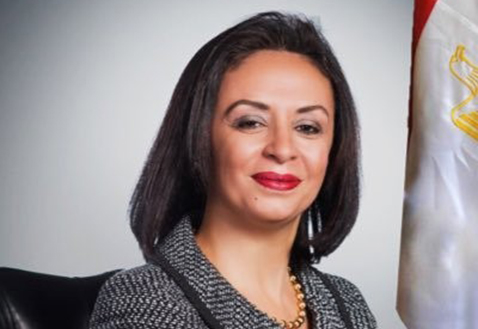

Dr. May Morsi took office as President of the National Council for Women (NCW) in February 2016. Upon re-formation of the NCW on 19 January 2016, members of the council elected her to serve as the third president of the NCW since it was established in 2000.
NCW is the highest national tool entrusted with formulating and monitoring national plans for the advancement of women in Egypt--providing policy options and advice in all fields related to the development and empowerment of women to enable them to play their rightful and essential roles in society and integrate their efforts in comprehensive national development programs.
Prior to joining the NCW, Maya Morsi had served, since 2013, as Regional Advisor on Gender Policies and Programmes in the United Nations Development Programme’s (UNDP) Regional Centre for Arab States in Cairo. She was responsible for providing policy advice and technical support for women’s empowerment and gender mainstreaming in planning and public budgets, as well as the formulation, monitoring and evaluation of regional and national strategies and plans for the advancement of women across the Arab region.
Maya Morsi’s career spans more than twenty years of dedicated service to the advancement of women and defending their fundamental rights. She served as Head of the Egypt Country Office of the United Nations Fund For Women – UNIFEM (2000-2013); UNIFEM Project Coordinator (1999-2000); Consultant for the Girls Education and Empowerment Project of the Ministry of Education in Egypt (1998-1999); and Project Officer in the Sustainable Human Development Platform for Action and Monitoring, implemented by UNDP in collaboration with the Ministry of Local Administration in Egypt (1995-1998). Prior to that, she served as Academic Facilitator in the Public Administration and Communication Joint Program between City University of Seattle and the Arab Academy of Science and Technology of the League of Arab States (1997-1998).
In 2008, Maya Morsi received a Ph.D. in Public Policy with a focus on the human security of Arab women from the Institute of Arab Studies and Research of the League of Arab States. She completed two Master’s degrees at the City University of Seattle, USA, in Business Administration (1998) and Public Administration (1997), after receiving a Bachelor’s of Arts degree in Political Science from the American University in Cairo (1995), with a minor in Mass Communication (Journalism).
Maya Morsi has authored and contributed to many studies and books, which focused on various aspects of the advancement of women in Egypt and the Arab region, including issues of human security of Arab women; gender-responsive public budgets; the integration of gender perspectives in agricultural activities in Egypt; gender-sensitive urban planning; and strategies for empowering Arab women and eliminating gender-based discrimination in accordance with commitments of Arab countries to the CEDAW and Security Council Resolution 1325 on Women, Peace and Security.
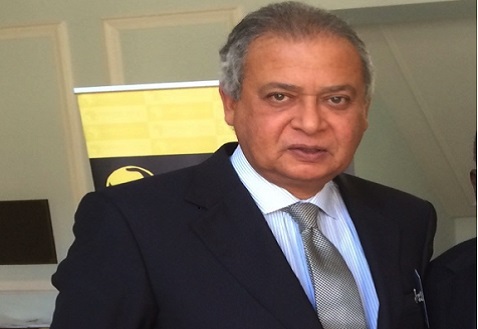

Ambassador Ashraf Rashed is currently the Chairperson of the African Peer Review Mechanism (APRM) National Commission of Egypt (since 2017), the Continental Task Force for Deeping the Review Processes in Africa, and the COMESA Committee of Elders (since 2019).
He’s been a member of the COMESA Committee of Elders since 2015, which addresses issues related to peace, security and governance in the COMESA region. Under this role, he represented COMESA at several UN meetings, and at the PAN Wise meetings organized by the AU.
He was also a member of the Committee that prepared the Africa Governance Report, adopted by the 2019 AU Summit.
From 2012-2017, he was appointed Vice Chairperson & member of the African Peer Review Panel of Eminent Persons. During his tenure, Ambassador Rashed gained experience in the promotion of good governance in the continent, including political, economic and social governance, with direct implications on conflict prevention, peacebuilding and sustainable development.
From June-September 2011, Ambassador Rashed was appointed International Consultant for the World Food Program, as facilitator and chairperson for the consultations on humanitarian assistance and risks in Somalia. Consultation participants included UN agencies, the Special Representative of UN Secretary-General, regional organizations, NGOs, and the donor community.
He served as Egypt’s Ambassador to Italy and Permanent Representative to the UN Agencies in Rome from 2006-2011, and Ambassador to Ireland from 1999-2003.
In 2009-2010, he was Chairperson of the African Group to the UN agencies in Rome. During the same period, Ambassador Rashed contributed to the launching of the Forum on Development of the Regions of Africa and Europe, an initiative by the European House -Ambrosetti and the Bank of Sicily, Italy.
Ambassador Rashed has served as Assistant Foreign Minister for European Affairs and Arab Coordinator for the Euro–Mediterranean Cooperation (2004-2006); Assistant Foreign Minister for African Affairs (February-September 2004); Deputy Assistant Foreign Minister for Strategic and Security Organizations in Europe (2003-2004); Deputy Assistant Foreign Minister for African Organizations (1997-1999); Head of the European Union Department (1996-1997); Deputy Chief of Mission, Embassy of Egypt to Austria, and Deputy Permanent Representative to the International Atomic Energy Agency, United Nations Industrial Development Organization, UN office Vienna, and OSCE (1992-1996).
He served in the Cabinet of the Minister of Foreign Affairs (1991-1992), the Embassy of Egypt to the United Kingdom (1987-1991), and was spokesman for the Foreign Minister (1984-1987). Prior to this, he served in the Embassy of Egypt to the United States of America (1980-1984), Cabinet of the Minister of Foreign Affairs (1979-1980), Embassy of Egypt to Sudan (1976-1979), and the Economic Department of the Foreign Ministry (1975-1976). (He began his Foreign Service career in March 1974.)
Ambassador Rashed is also a member of the Egyptian Council for Foreign Affairs, the Italian/Egyptian Business Council (since 2012), and the Egyptian National Group of Pugwash.
He holds a Bachelor’s degree of Economics from Alexandria University (1972).
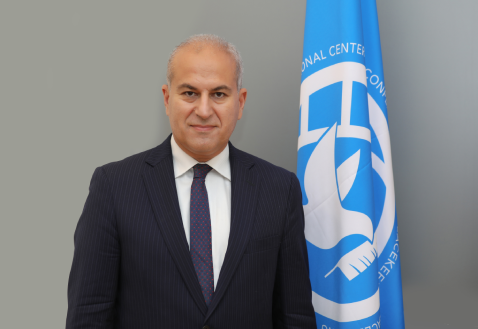

Ambassador Ahmed Abdel-Latif has been Director General of CCCPA since October 2020, and the Executive Director of the Aswan Forum for Sustainable Peace and Development since October 2020.
A career diplomat since 1997, he has a long standing experience in multilateral affairs with a focus on global issues including sustainable development, trade, energy, innovation and knowledge governance.
At the Egyptian Ministry of Foreign Affairs, he served at the Departments of International Cooperation for Development, United Nations Affairs and International Economic Relations. From 2000 to 2004, he was posted to the Permanent Mission of Egypt to the United Nations (UN) and the World Trade Organization (WTO) in Geneva where he worked on disarmament, trade, health and intellectual property issues. He also worked at the Office of the Spokesman of the Prime Minister from 2005 to 2006.
On secondment from the Ministry of Foreign Affairs, he held senior positions in intergovernmental organizations and think thanks. Prior to joining the Cairo Center, he was the Permanent Observer of the International Renewable Energy Agency (IRENA) to the United Nations and Chief of the Agency’s New York Office. He joined the Agency in November 2015 serving as Special Assistant, Policy and Programme, Office of the Director General and then as the Chief of the Office of the Director General from 2017 to 2019. He was also Senior Programme Manager for Innovation, Technology and Intellectual Property at the Geneva-based International Centre for Trade and Sustainable Development (ICTSD) from 2007 to 2015.
For more than twenty years, Ahmed Abdel-Latif has taken an active part in international debates on sustainable development, climate change, innovation, green technologies and intellectual property and has been a frequent speaker on these topics at international conferences and meetings. He has also been a resource person in training and capacity building activities in these areas delivered by international organizations and other technical assistance providers.
He has authored and co-edited numerous publications including books, research papers, policy briefs and articles. Recent publications include: The Cambridge Handbook of Public-Private Partnerships, Intellectual Property Governance, and Sustainable Development (2018, edited with M. Chon and P. Roffe) and Protecting Traditional Knowledge: The WIPO Intergovernmental Committee on Intellectual Property and Genetic Resources, Traditional Knowledge and Folklore (2017, edited with D. Robinson and P. Roffe). He has been a peer reviewer for journals such as Energy Policy and Climate Policy.
Ahmed Abdel-Latif was a research fellow in the Sustainability Science Programme at Harvard University’s John F. Kennedy School of Government in 2012. In 2014-15, he was the representative of Research and Independent Non-governmental Organizations (RINGOs) to the Advisory Board of the Climate Technology Centre and Network (CTCN) under the United Nations Framework Convention on Climate Change (UNFCCC). He has also lectured on international relations at the Institut de Droit des Affaires International (IDAI), a branch of the Université Paris 1 Panthéon-Sorbonne, at the Law Department of Cairo University.
He holds a master’s degree in public international law (LLM) from the London School of Economics and Political Science (LSE), a bachelor’s degree in political science from the American University in Cairo (AUC), the diplôme from the Institut d'Etudes Politiques de Paris (Sciences Po) and the diploma from the Egyptian Institute of Diplomatic Studies (IDS).
Ahmed is fluent in Arabic, English, French and Spanish.
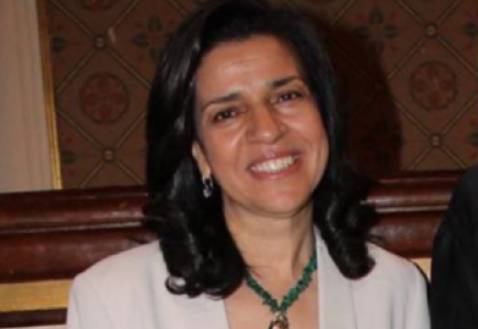

Dr. Abou Ghazy is an Associate Professor of Political Science in the Faculty of Economics and Political Science at Cairo University.
She holds a Ph.D. with a focus on the State and culture in Egypt, and a study of the cultural policy and its implementation on the intellectual environment from 1970-1981; a Master's degree with a focus on the issue of freedom in contemporary Egyptian theater from 1952-1967; and a Bachelor's degree in economics and political science.
Her recent publications include an evaluation study in light of international standards for cultural development titled, "Cultural Policies in Egypt in the First Decade of the Third Millennium."
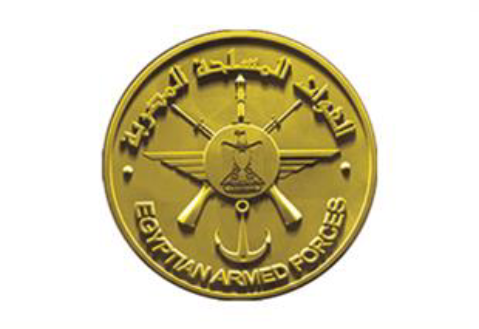

-
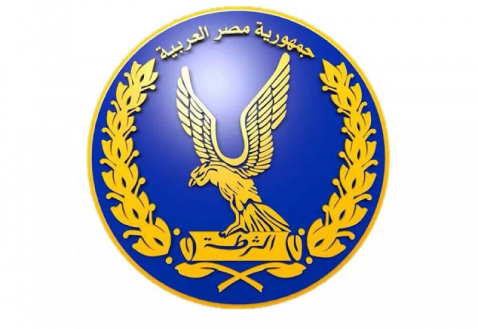

-





